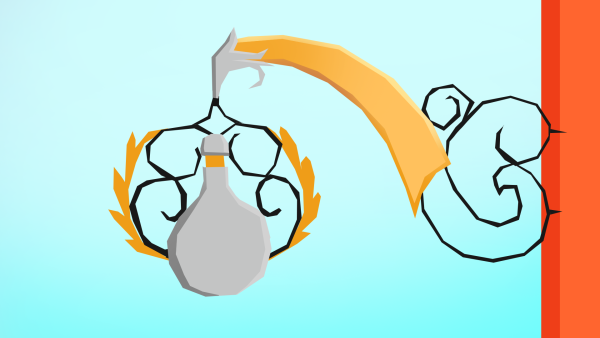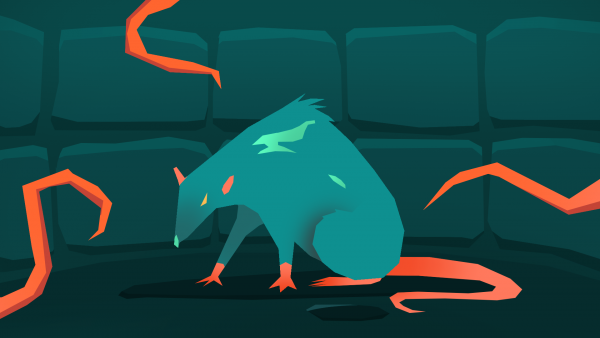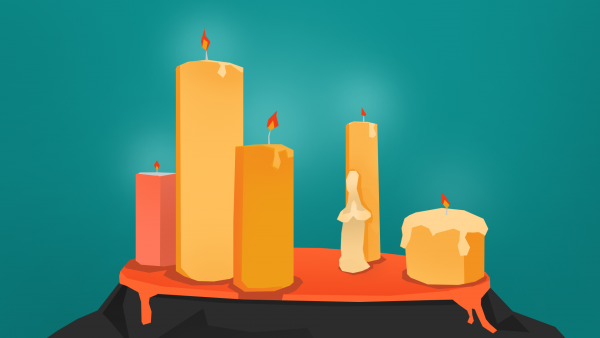Creating cultures might be the hardest part of worldbuilding – you have to think about SO MUCH stuff! But don’t worry, I’d like to help you through it all.
Cultures are the fundamental building stone of most worlds. It’s a lot to think about at once, so I’d like this article to be a kind of hub – I will talk about everything related to cultures in a few paragraphs, and then link a full article on the topic when it’s released on the blog.
When creating cultures, you don’t have to necessarily cover all aspects. What you want to develop depends on what you want to achieve in the world. You might want to show only glimpses of the culture, but it’s always a good idea to create the most you can, as it lends realism to the world.
Race
One of the first things you might want to consider is the species (or race), itself. How do they look, and what’s their anatomy. In this step, it’s important to consider evolution. Species will naturally evolve to thrive more in their environments, their features changing to suit the conditions they live in. For example, species that hunt fast animals will have stronger legs.
I’d recommend checking out the Creating Animals article before you dive into the Creating Races one, as intelligent species derive from animals.
System of Government
Is your culture a democracy? Are rulers decided by their lineage, or are they chosen by Gods? There’s always a reason for a system of government to be implemented in a certain way. Maybe, in a savage culture, the leader is always the strongest one. Maybe it seems like a democracy, but there’s actually a group of politicians in the background, manipulating the chosen “leader”.
Think about what your society values and build your government around it. Be also sure to consider the advantages and disadvantages of certain systems.
It’s important to not forget that systems of government can (and probably will) change throughout history.
Currency
Please, don’t just settle for “silver coins” and “gold coins”. I think it’s just lazy worldbuilding. You don’t have to figure out the whole state of the economy, but it really does go a long way to create a few coins.
The name’s of coins can derive from a variety of sources. They could be named after the thing that is engraved on the coin, the coin’s shape, weight, material, or value. I would recommend setting up a basic unit (like a dollar) and considering making smaller and bigger coins as fractions or multiplications of that unit. For example, a cent is one-hundredth of a dollar.
The image engraved on a coin can also tell a lot about the rest of the culture. The intricacy of the engraving tells a story about the country’s technology, and the image itself tells what does the country (or its government) value most. An idealistic portrait of a leader may suggest a tyrant, while different animals on each coin can be a result of a nature-based religion.
Calendar
You should develop at least a basic calendar system for your culture because it’s a great way to keep track of time, the seasons, and holidays (more on them later). It can also help you a lot when developing the nation’s history.
There are three main types of calendars – lunar, solar, and lunisolar. Lunar calendars base their months around the phases of the moon, while solar ones rely on the rotation of the planet around its star. Lunisolar calendars combine the best of the two approaches.
When it comes to naming the months in your calendar, it ends up being pretty similar to the naming of coins. Think about what your culture values and name months accordingly. This could be the crops that grow during that month, the names of gods, etc.
I have a full article on calendars, you can check it out here.
Holidays
If you have a calendar, and a religion figured out, why not look at some holidays? Holidays can be either religion-based or political. The religion ones usually take a long time to fully form (hundreds of years). In most cases, they evolved from old, smaller holidays, such as mass candle-lighting, or feasts. It’s often good to look at the seasons, as holidays are often tied to the harvests, the end of the winter, etc.
Political holidays celebrate a certain event, or a person, from the history of the country. Probably the most well-known example of this is the 4th of July, which is a pretty big deal in the United States.
Settlements
Once your race gains intelligence, they are going to bond together in houses, and then connect up more houses in strategic positions, thus creating villages. Villages usually form very organically – there is a need for a new building, the people of the village band together to build it. As the village grows, the word is going to spread, and more people are going to come. With them, traveling merchants, and the village suddenly makes money and grows even more.
For a more detailed guide on creating villages, feel free to check out my Creating Villages article.
Technology
One of the most important things, for a culture, is its technology. Technology dictates the state of weapons, the means of travel, the possibilities when working with various materials, etc. Be sure to integrate magic into the technology (or give a reason why it’s not integrated), if your world has magic.
If you don’t know how to start creating a magic system, feel free to read my article Creating Magic Systems.
History
We may not feel it in our everyday lives, but our history affects us in a huge way, so it’s important to figure out a culture’s history, as well. The problem is that the history of one culture will often intermingle with the history of another. That means it’s hard to create the history, unless you create other cultures, as well.
One thing I would recommend: Try to think about “what would happen next?”, not about “what has to happen to get to this point?”.
Naming System
The names of your characters, places, animals, and plants, are going to derive from the language of your culture. Names usually have hidden meanings, with the word evolving over hundreds of years. Of course, you can sometimes name things with just usual words, or combinations of words. For example, there’s the forget-me-not flower in English.
Language
Creating a language might be one of the hardest things when creating cultures. A fictional language, or a conlang, requires months of development, and there’s no way I can summarize it in only a few paragraphs (however, I am going to try).
There is a lot to figure out in a conlang. You should probably start with the sounds your new language is going to use. Consult phonological inventories, and choose a few sounds to use. Generally, less is more. If you use all the sounds, your language is going to be very over-saturated, and chaotic.
Next, you should figure out the phonotactics of the language. Basically, this includes rules for your sounds (for example, where can they appear in a word). This will help you later when creating the words.
After figuring out the rules of sounds, let’s work on the writing system. Pick a type of the writing system, for example, alphabets include a symbol for each consonant and vowel, while ideographs use images to represent things. You should also think about the constraints of the medium. If your culture engraves their texts in stone, not many round angles will be present. Figure out the rules for writing – in which direction do you read?
After all this, you should create some of the words. There is no best way to create words, but I would generate words only as I need them in a story. First, create a “root word”, which will convey the general concept of the thing you need to express. You can now create a family of related words by taking the root word and adding suffixes, prefixes, and other -fixes. Remember, one word can have several meanings, and one meaning can have several words.
Obviously, there is a lot more to creating languages. But for now, this is all I will cover in this article (remember, it’s about creating cultures). I will link to my article about conlangs when it’s done!
Weapons and Armor
If you want to be realistic with your weaponry and armor, consider the technology, knowledge, and materials available at the time of creation. Think about what metals are accessible, and if your culture can process them, in order to shape them into weapons and armor. More on materials in an upcoming article.
Another thing to consider is the wielder themselves. How strong are they? What is their training? Using weapons is hard, and a character won’t be good at it unless they’ve got a lot of training with that particular type of weapon.
A cool armor is great, but it’s going to be useless if the character can’t carry its weight.
Here (like everywhere), it’s great to do a lot of research. Think about what real-life period your world reflects, and find what weapons and armor were used in that time. Of course, you can bend the rules a little. After all, it’s fantasy (or sci-fi).
But generally, you’d want to stay at least a little realistic. I would recommend Shadiversity, an awesome channel on YouTube, talking about medieval weapons, armor, and realism in fantasy fiction.
Other than him, I’m sure you’ll be able to find lots of other great resources. I’ll link my Armor and Weapons article here, after I publish it.
Religion
Religion may play a major part when creating cultures. When creating a religion, it’s first good to consider the realness. Do the followers know that their religion is real, or do they just have faith, with no concrete evidence?
Next, think about the supernatural. Does your religion have gods? Are there any other supernatural beings, such as angels, demons, or mythological creatures? Do they have legends, perhaps of the creation of the world? How are these legends passed down through time?
What symbols does your brand new religion have? For some inspiration, check out real-world examples.
How do the followers of this religion show their faith? Do they go to a sacred place, like a church, do they wear special clothing, etc.
Sports & Games
Creating a sport or a game for your culture is a great idea, as it can, once again, add detail to your, world, and you can even create major plot points around the sport/game (like Quidditch). When creating a sport (or a game, the general stuff stays the same), you should think about who the sport is for. Many sports are optimized for the people watching it, but you can do sports just for the fun of playing it.
If for the audience, consider the thrill they’re going to get by watching it. I personally don’t watch many sports, but if you look at soccer, for example, the main thrill is when the ball is near a goal, and there’s a possibility of a score. It’s a long wait, but the short part near the goal is exciting as hell. What will be the main source of this thrill in your sport?
You should also suit the sport to match the general feel of the culture. A violent culture of savage orcs will probably have a violent sport, that can be played with little to no sophisticated equipment.
Other
There are a lot of other things to consider when creating cultures. What do they wear? How do they create their clothing? What’s their sense of fashion?
How do they make food? Do they eat animals? If so, what animals, and how do they get their meat? If not, do they farm, and how? Do they have fancy restaurants, with exotic meals?
How can they travel? This will depend on the technology, but a culture is very different when it takes two days to make it to the nearest city, versus when it takes five minutes.
How about their economy? Do they trade with other nations, what are their most valued resources?
Architecture! Try to sketch a few buildings, to get a sense of how their houses look. Architecture can also tell the reader a lot about a culture.
Think about everyday things, like how do they make furniture and cutlery. Little details like this can surface from time to time, and create a feeling of a deep, realistic world.
You might want to create some art that your culture enjoys, some poets, writers, artists, literature in general.
How does your culture do war? What armies to they have, what tactics do they use, what are some famous generals and battles?
If you’ve enjoyed this blog post, I think you’d like to join the Eledris Blog Discord server – it’s a growing community of worldbuilders and other artists, who would all be happy to welcome you there! Check it out.
Do you have any feedback on the article, or would you like to share your culture? Let’s chat in the comment section below!
📌 Pin this for later!



